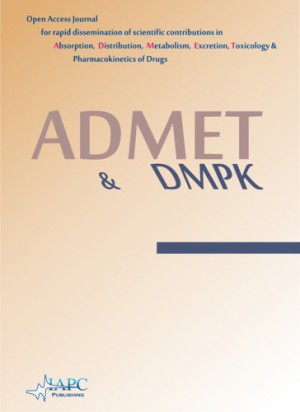
ADMET & DMPK
Yazarlar: Alejandro Palacios, Javier Barberón, Patricio Leaden, Pedro Zeinsteger
Konular:-
DOI:10.5599/admet.4.2.251
Anahtar Kelimeler:Marigold,Lipoperoxidation,Chemiluminescence
Özet: In this study the effects of Calendula officinalis L. (Asteraceae) extract (CO) on the polyunsaturated fatty acid composition, chemiluminescence and unsaturation index of microsomes isolated from brain rat, are presented. After incubation of microsomes in an ascorbate (0.4 mM)-Fe2+ (2.15 μM) system (180 min at 37 °C) it was observed that the total cpm/mg protein originated from light emission:chemiluminescence was lower in brain microsomes obtained from CO group compared to the control group (without extract supplementation). Moreover, it was observed that the addition of the extract reduced chemiluminescence -measured as total cpm- in a concentration dependent manner. The fatty acid composition of brain microsomes from control group was profoundly modified when subjected to non-enzymatic lipoperoxidation with a considerable decrease of arachidonic acid C20:46 and docosahexaenoic acid C22:63. As a consequence, the unsaturation index, a parameter based on the maximal rate of oxidation of specific fatty acids, was higher in the CO group compared to controls. The simultaneous analysis of unsaturation index, chemiluminescence and fatty acid composition indicate that CO may act as an antioxidant protecting rat brain microsomes from peroxidative damage.